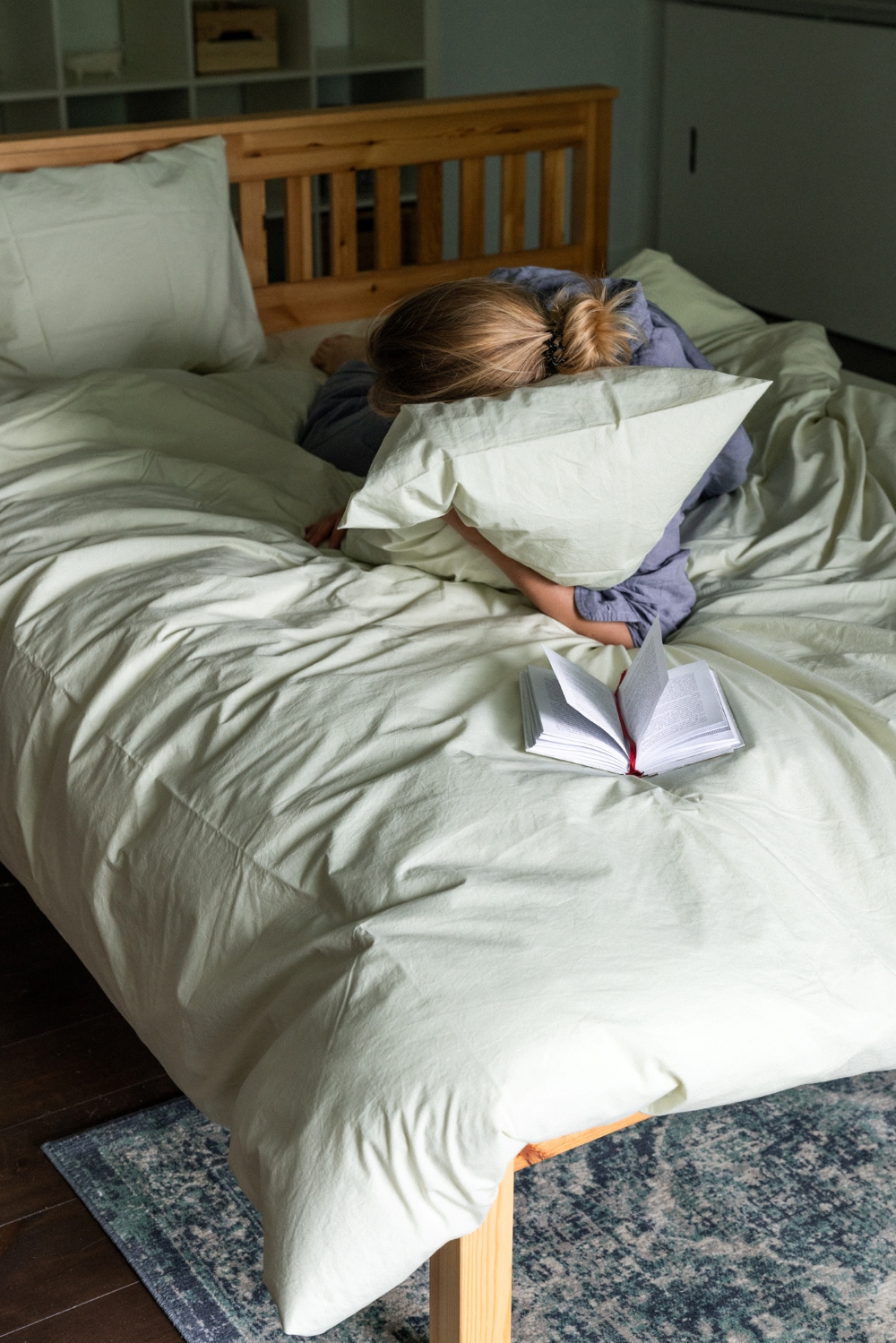
Another way to increase productivity - an afternoon nap!
You'll probably agree: the mere thought of an afternoon nap is sweet itself. However, not everyone dares to take a half-hour nap in the afternoon - firstly, not everyone has the opportunity and for some, sleepiness only increases after napping.
After all, an afternoon nap has enormous health, alertness, and productivity benefits if used properly. The good news is that in this article, we've put together some recommendations that will help you snooze like a pro.
Neuroscientists say: an afternoon nap increases productivity. Studies have shown that after a good afternoon nap, we can solve problems more creatively, react to situations faster and significantly reduce the likelihood of mistakes at work. The evidence of the positive effects is so obvious that even NASA has included an afternoon nap in the routine of astronauts.
An afternoon nap helps not only in the work process, but also in the learning process because its duration is sufficient to transfer fragments of short-term memory to long-term memory and thus not only capture what has already been learned, but also free up space for new information.
Although for busy people, a half-hour afternoon nap may seem like a waste of time, it can help prevent burnout symptoms by increasing stress resistance, lowering blood pressure, and stimulating the release of serotonin, the hormone of contentment, peace and relaxation. This is why cultures, where afternoon naps are standard, have a lower risk of cardiovascular diseases.
While some fear that an afternoon nap may disturb the quality of the main night's sleep, neuroscientists also have a verdict: a short nap during the day can contribute to the quality of the night's sleep in two ways. First, the systematic use of afternoon naps reduces the amount of time spent trying to fall asleep in the evening. And secondly, a proper afternoon nap strengthens the ability to sleep all night without waking up and to sleep even 20 minutes longer in total.
After all, an afternoon nap has enormous health, alertness, and productivity benefits if used properly. The good news is that in this article, we've put together some recommendations that will help you snooze like a pro.
The main benefits of an afternoon nap
Neuroscientists say: an afternoon nap increases productivity. Studies have shown that after a good afternoon nap, we can solve problems more creatively, react to situations faster and significantly reduce the likelihood of mistakes at work. The evidence of the positive effects is so obvious that even NASA has included an afternoon nap in the routine of astronauts.
An afternoon nap helps not only in the work process, but also in the learning process because its duration is sufficient to transfer fragments of short-term memory to long-term memory and thus not only capture what has already been learned, but also free up space for new information.
Although for busy people, a half-hour afternoon nap may seem like a waste of time, it can help prevent burnout symptoms by increasing stress resistance, lowering blood pressure, and stimulating the release of serotonin, the hormone of contentment, peace and relaxation. This is why cultures, where afternoon naps are standard, have a lower risk of cardiovascular diseases.
While some fear that an afternoon nap may disturb the quality of the main night's sleep, neuroscientists also have a verdict: a short nap during the day can contribute to the quality of the night's sleep in two ways. First, the systematic use of afternoon naps reduces the amount of time spent trying to fall asleep in the evening. And secondly, a proper afternoon nap strengthens the ability to sleep all night without waking up and to sleep even 20 minutes longer in total.

A proper afternoon nap. How long should it last?
For the afternoon nap method to work, it must be applied precisely. In order to quickly regain strength and start working with increased productivity and creativity, the recommended duration of an afternoon nap is 10-20 minutes. The most commonly used length of an effective afternoon nap is 15 minutes.
After sleeping for more than 30 minutes, you will no longer have a good effect - when you wake up, you will feel drowsy, your brain will work slower and it will take at least another half hour to return to a normal working rhythm. Finally, the 30-minute nap can later disrupt your sleep during the night. Such long afternoon naps are better to be avoided!
In certain cases of life (certainly not on weekdays!) you can also apply the tactic of a long afternoon nap of 60 to 90 minutes. This will allow you to fall into a deeper sleep and allow your brain to process cognitive experiences: remembering faces, facts, places, etc. Taking 90 minutes for an afternoon nap will give you a full sleep cycle that restores creativity, energy, emotional memory, and even physical recovery. You can use the tactic of taking a long afternoon nap before important presentations or meetings, exams, etc. It is best to allocate time for it on the weekend or when there is no need to start working immediately after sleep.

The most important aspects that will help you practice a quality afternoon nap
In order to achieve the best effect of an afternoon nap, you need to plan it properly - the ideal time for an afternoon nap is between 13:00 and 16:00. It's best if you take your afternoon nap before you feel sleepy, so just add it to your schedule.
For sleep, choose a place where you can lie down. It is best to raise your head a little higher or half-sit to avoid deep sleep. The room where you plan to take a nap should be dark or at least dimmed (you can also use a sleep blindfold!) to help you fall asleep as quickly as possible.
The last and most important element of a good afternoon sleep is waking up on time. Set the alarm on your phone to be loud enough to really wake you up at the right time.
If you drink caffeinated coffee, you can also use this trick: drink a cup of coffee right before you take an afternoon nap. Coffee begins to work only after 20 minutes, so it will help you wake up, and you will feel even more refreshed after your nap.

